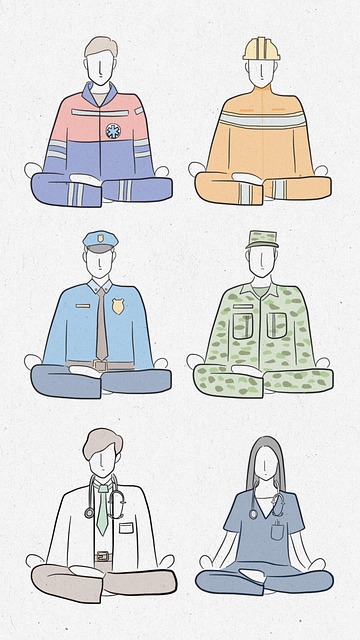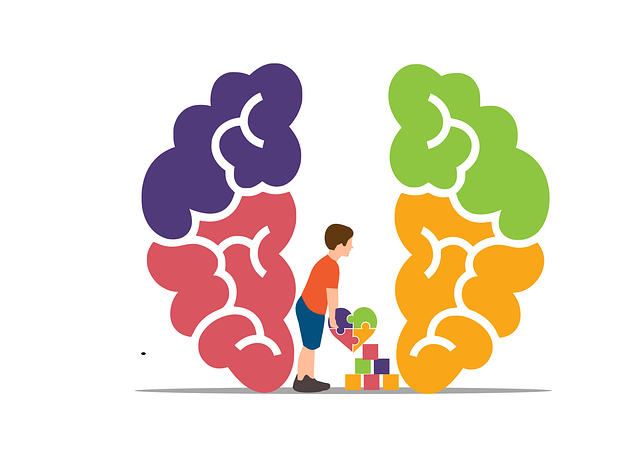Littleton Chronic Illness Therapy (LCIT) offers a holistic approach to empowering individuals living with chronic illnesses. Utilizing the RFM model, LCIT focuses on building resilience through resourcefulness, flexibility, and mobility. Tailored interventions include cognitive-behavioral therapy, mindfulness, stress management, and goal setting. The program addresses emotional well-being, mental health coaching, and practical support for daily tasks and financial strains. Through personalized exercises, ongoing education, and community outreach, LCIT enhances quality of life, improves coping strategies, and advocates for Mental Health Policy, ensuring participants feel supported and in control of their health journey.
“In today’s fast-paced world, resilience is a cornerstone of well-being, especially for those managing chronic illnesses. This article explores the powerful synergy between RFM (Resilience, Flexibility, and Mastery) principles and Littleton Chronic Illness Therapy, designed to empower individuals and families. We delve into the impact of chronic conditions on daily life and how structured resilience exercises can mitigate challenges. Additionally, we provide a comprehensive step-by-step guide to implementing these practices, offering insights for measuring success and fostering continuous improvement in health and happiness.”
- Understanding RFM and Its Role in Resilience Building
- The Impact of Chronic Illness on Individuals and Families
- Littleton Chronic Illness Therapy: An Overview
- Implementing Resilience Exercises: A Step-by-Step Guide
- Measuring Success and Continuous Improvement
Understanding RFM and Its Role in Resilience Building

Resilience is a vital component of overall well-being, especially for individuals managing chronic illnesses. This is where the RFM (Resourceful, Flexible, and Mobile) model steps in as a powerful tool. At Littleton Chronic Illness Therapy, we recognize that building resilience isn’t just about coping; it’s about flourishing despite challenges. The RFM framework equips people with strategies to navigate life’s twists and turns, fostering adaptability and a sense of control.
By understanding one’s resources, whether internal strengths or external support networks, individuals can harness their flexibility to adapt to changing circumstances. This includes learning effective mood management techniques and enhancing social skills through training, all of which are integral parts of our Community Outreach Program Implementation. The RFM model encourages movement towards positive goals, enabling people to embrace change and uncertainty with confidence, ultimately strengthening their resilience.
The Impact of Chronic Illness on Individuals and Families

Chronic illnesses have a profound impact on individuals and families alike, often leading to significant physical, emotional, and financial challenges. In Littleton Chronic Illness Therapy circles, it’s common for patients to face not just the symptoms of their illness but also the complex web of stress and anxiety associated with living with a long-term health condition. This can manifest in various ways—from difficulty managing daily tasks due to fatigue or pain to heightened levels of stress that affect mental wellness. The burden is further exacerbated by the need for constant medical care, which often involves frequent doctor’s visits, medication management, and potentially, limited mobility.
This situation extends beyond the patient, profoundly affecting family dynamics. Caregiving responsibilities can strain relationships while financial constraints due to medical expenses may cause significant stress. Empathy building strategies and mental wellness coaching programs play a crucial role in mitigating these challenges by providing emotional healing processes tailored to both patients and their families. Through such initiatives, Littleton Chronic Illness Therapy centers aim to not only treat the physical symptoms but also fortify resilience, ensuring that individuals and families can navigate this complex landscape with greater strength and adaptability.
Littleton Chronic Illness Therapy: An Overview

Littleton Chronic Illness Therapy (LCIT) offers a specialized approach to addressing the unique challenges faced by individuals living with chronic illnesses. This therapeutic model is designed to enhance resilience, improve coping strategies, and promote overall well-being. LCIT incorporates various evidence-based practices tailored to the specific needs of those dealing with long-term health conditions. By focusing on both the physical and psychological aspects of chronic illness, it aims to empower individuals to manage their symptoms effectively.
The program often includes a range of interventions such as cognitive-behavioral therapy, mindfulness practices, stress management techniques, and conflict resolution strategies. These tools help patients navigate the complexities of their health journey, reduce the impact of burnout prevention, and foster a sense of control. Additionally, LCIT encourages self-advocacy, enabling individuals to navigate healthcare systems, advocate for their rights, and make informed decisions regarding their mental health. This holistic approach is supported by ongoing research, demonstrating its effectiveness in improving the quality of life for those with chronic illnesses, while also informing Mental Health Policy Analysis and Advocacy efforts.
Implementing Resilience Exercises: A Step-by-Step Guide

Implementing resilience exercises can be a transformative process for individuals navigating chronic illness, offering them valuable tools to enhance their mental wellness. At Littleton Chronic Illness Therapy, we understand that building resilience is a journey, and our approach is tailored to meet each client’s unique needs. Here’s a step-by-step guide to help you integrate these exercises effectively:
1. Assess Individual Needs: Begin by evaluating the individual’s current mental health status, cultural background, and personal goals. This assessment guides the selection of resilience-building techniques that align with their specific challenges and preferences. Incorporating aspects like Cultural Sensitivity in Mental Healthcare Practice ensures a personalized and inclusive approach.
2. Set Realistic Goals: Work together with the client to establish achievable goals for their resilience development journey. These goals could range from improving coping mechanisms, enhancing self-care practices, to fostering positive self-talk. Regularly review and adjust these goals as progress is made, ensuring a continuous path towards mental wellness through our Mental Wellness Coaching Programs Development.
3. Introduce a Range of Exercises: Offer a variety of resilience exercises such as mindfulness meditation, cognitive reframing, progressive muscle relaxation, or keeping a gratitude journal. Each technique targets different aspects of mental health awareness and well-being. For instance, encouraging clients to engage in physical activity can be a powerful exercise in itself, promoting stress reduction and building a sense of accomplishment.
4. Provide Education and Support: Educate clients about the chosen exercises, explaining their benefits and how they contribute to overall resilience. Offer ongoing support by providing resources, answering questions, and offering encouragement during practice sessions. This ensures that clients feel empowered and understood throughout their mental health journey.
Measuring Success and Continuous Improvement

Measuring Success is a vital step in any resilience-building initiative, allowing for a clear understanding of progress and impact. At Littleton Chronic Illness Therapy, we employ tailored metrics to evaluate the effectiveness of our exercises and programs. This involves tracking participant engagement, improvements in stress management skills, and changes in overall mental health awareness. By collecting qualitative and quantitative data through surveys, observations, and feedback sessions, we gain valuable insights into what works best for different individuals and groups.
Continuous Improvement is at the heart of our approach. Using the insights gathered during evaluation, we adapt and refine our exercises and workshops, ensuring they remain relevant and impactful. The Stress Management Workshops Organization’s emphasis on community engagement further enriches this process by integrating local needs and preferences into program design. Through regular assessments and ongoing dialogue with participants, we foster a dynamic environment where learning and growth are perpetual, ultimately enhancing the resilience of individuals and communities, as evidenced through our Community Outreach Program Implementation.
The implementation of RFM and resilience building exercises, as outlined in this article, offers a powerful approach to supporting individuals and families affected by chronic illness. By understanding the impact of chronic conditions and utilizing evidence-based practices like Littleton Chronic Illness Therapy, we can empower people to navigate challenges with enhanced resilience. The step-by-step guide provided ensures a structured framework for effective exercise implementation, while continuous improvement measures allow for personalized adjustments. Through these strategies, individuals can build mental fortitude, adapt to life’s uncertainties, and lead more fulfilling lives despite health constraints.













